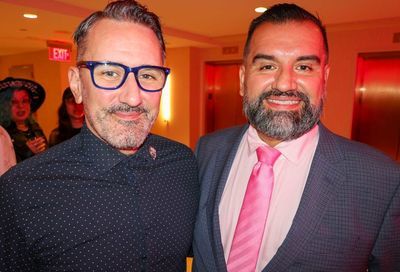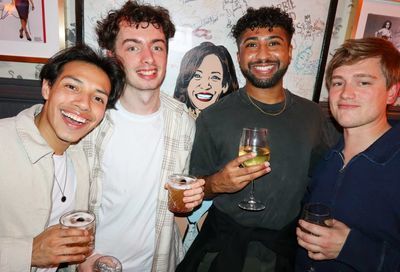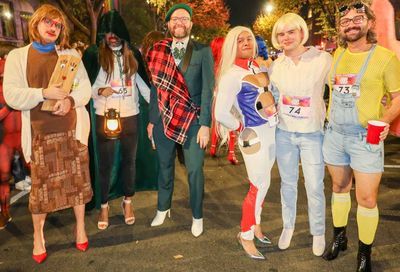The Media Message
Washington is a better place for LGBT journalists thanks to groups such as NLGJA
My first real job as a journalist, way back in 1989, was covering tax issues on Capitol Hill. It didn’t take long for me to realize that I was a bit out of my depths, given that I had absolutely no experience covering federal-level tax, banking and securities regulation, but when you’re just starting out you take advantage of any rung you can grab on the career ladder.
There were some more seasoned journalistic hands who gave me some much needed advice and pointers, including one young reporter from a national publication who sat next to me at a few Senate banking hearings and helped explain some of what was going on.
One evening, I happened to see him out at a local gay bar. Given that he had been so helpful to me, I happily went up to him to say, ”Hi!”
And a look of fear came across his face. He muttered a quick hello before bolting from the bar.
Things were different two decades ago. The closet reigned supreme over official gay Washington, as even those who were ”open” in their personal lives strove to maintain secrecy at their jobs. Journalists were no different.
But things have changed over the ensuing years. LGBT media has grown in reach and respect; major newspapers have LGBT reporters covering everything from politics to Hollywood; and most news channels have openly LGBT reporters, panelists and hosts.
I find myself reflecting on this as I’ve just returned from the National Lesbian and Gay Journalists Association (NLGJA) convention in San Francisco, where the organization celebrated its 20th anniversary. It’s a group that I’ve been involved with to varying degrees over the past 10 years — sometimes just maintaining a membership, sometimes serving on the board of the local chapter.
The ability to be an openly gay journalist didn’t come overnight. It came from the work of many people and organizations, including NLGJA, who took stands for living honestly in both our professional and personal lives.
Because NLGJA is made up of journalists, many of whom bring an old-school sensibility about staying out of the spotlight and not becoming part of the story, it’s an organization that often flies under the LGBT community’s radar. Whereas other LGBT media watchdogs wage public campaigns against negative portrayals of LGBT lives, NGLJA has often done the same without fanfare. In my own time with the D.C. chapter’s board, we reached out to local mainstream media outlets about problematic coverage, relying on a peer-to-peer approach to help them learn and understand the negative impacts of stereotypes on our community.
But that’s not the main reason I always find myself drawn back to NLGJA. I keep coming back because I like the simple fact of meeting others who share my own passion for media, whether LGBT, mainstream or blog. As LGBT journalists, bloggers and editors, we’re living in a fascinating time of opportunity and change, and all of us have a lot to learn from each other moving forward.
While there are still closeted journalists out there, I know that the world has changed for the better. And thanks to groups such as NLGJA, I’m glad I now live in a world that makes running into a fellow journalist in a gay bar not a moment to fear, but a moment to celebrate.
Support Metro Weekly’s Journalism
These are challenging times for news organizations. And yet it’s crucial we stay active and provide vital resources and information to both our local readers and the world. So won’t you please take a moment and consider supporting Metro Weekly with a membership? For as little as $5 a month, you can help ensure Metro Weekly magazine and MetroWeekly.com remain free, viable resources as we provide the best, most diverse, culturally-resonant LGBTQ coverage in both the D.C. region and around the world. Memberships come with exclusive perks and discounts, your own personal digital delivery of each week’s magazine (and an archive), access to our Member's Lounge when it launches this fall, and exclusive members-only items like Metro Weekly Membership Mugs and Tote Bags! Check out all our membership levels here and please join us today!



















